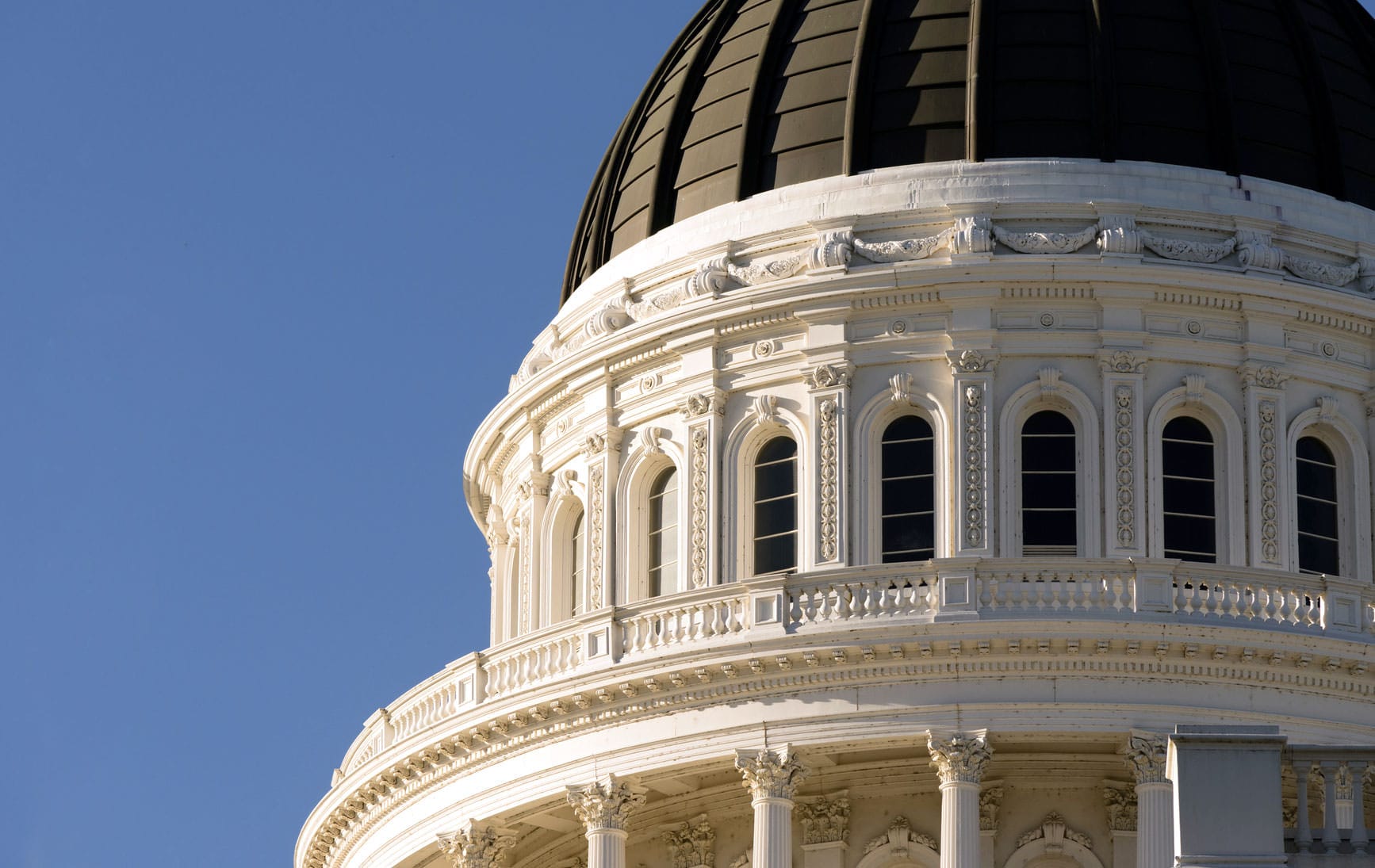Prohibition on Suspensions Based on Willful Defiance Expands Again.
Building off prior success in this area, Senator Nancy Skinner (D-Berkeley) successfully authored SB 274, which, beginning on July 1, 2024, will prohibit the suspension of students in grades 9-12 based on willful defiance until July 1, 2029. SB 274 also extends the current prohibition on suspensions based on willful defiance in grades 6-8 until July 1, 2029. As a reminder, previous legislation permanently banned willful defiance suspensions for children in TK to grade 5, and in grades 6-8 until 2025. According to Senator Skinner, SB 274 is “based on a simple premise: students belong in school.” Removing students with behavioral issues, she and the bill sponsors contend, does nothing to address the underlying issues causing the behavior. Studies have also shown that willful defiance suspensions disproportionately impact students of color, homeless students, those with disabilities or in foster care, and those who are LGBTQIA+. To address the root cause of the behaviors that have traditionally led to students’ removal from class, SB 274 permits school employees to refer students to school administrators for appropriate and timely in-school interventions, including parent conferences, referrals to a school counselor, and restorative justice programs. If such action is taken, the administrator must document what was provided to the student on their records, or, if no action is taken, provide rationale for not offering supports.
Senate Education Committee Chair Authors “Cooling Off” Bill for Superintendent Terminations.
Borne of a termination near his own legislative district, Senator Josh Newman (D-Fullerton) carried SB 494, which prohibits a school district governing board from taking action to terminate the superintendent or assistant superintendent without cause at a special or emergency meeting. It additionally prohibits a governing board from terminating the superintendent or assistant superintendent, or both, without cause, within 30 days after the first convening of the governing board after an election at which one or more members of the governing board are elected or recalled. Senator Newman worked in collaboration with the bill sponsor, the Association of California School Administrators (ACSA), after a newly installed governing board terminated the superintendent and assistant superintendent without cause at a special meeting, with their replacements already lined up to assume the roles. While SB 494 will prevent that happening in the future, it does specifically authorize a governing board to hold a regular meeting for the purpose of terminating a superintendent or assistant superintendent of the school district, or both, without cause, during any month in which a regular meeting of the governing board is not scheduled.
The Governor signed the following governance and operations bills:
District Boundaries/Student Transfers
- SB 413 (Bradford) – School attendance: interdistrict attendance
Current law allows a parent to appeal a school district’s decision regarding a request for interdistrict transfer to the county board of education. This bill authorizes a county board of education in a class 1 or class 2 county to, in certain circumstances, extend the time period to determine whether the pupil should be permitted to attend the school district of proposed enrollment and the applicable period of attendance to up to 60 calendar days after the appeal is filed.
Chapter 606, Statutes of 2023
Elections
- AB 764 (Bryan) – Local redistricting
This bill requires county boards of education, school districts, community college districts, and others, if the governing body of these local jurisdictions is elected by districts, to comply with uniform requirements related to redistricting. The bill also requires local jurisdictions to adopt district boundaries, using specified criteria, following the decision to establish district-based elections and following each federal decennial census.
Chapter 343, Statutes of 2023
Governance/ Operations
- AB 275 (Ward) – School governance: governing boards: pupil members: compensation
This bill allows the county board of education, the governing board of a school district, and the governing body of a charter school or of an entity managing multiple charter schools to award a pupil member elective course credit, monthly compensation, or both. For county boards of education and district governing boards, AB 275 authorizes a pupil member to also receive partial monthly compensation and authorizes an absent pupil member or an absent regular member to be paid for any meeting if the county board of education or school district governing board makes certain findings.
Chapter 321, Statutes of 2023 - AB 417 (Bennett) – County boards of education: pupil members
This bill authorizes a pupil who is enrolled in a high school that is under the jurisdiction of the county board of education, and who may be less than 18 years of age, to be selected to serve as a pupil member of the county board of education if no petition is submitted to select a pupil who is enrolled in a high school that is under the jurisdiction of the county board of education.
Chapter 437, Statutes of 2023 - AB 557 (Hart) – Open meetings: local agencies: teleconferences
This bill eliminates the sunset date on provisions of law allowing local agencies to use teleconferencing without complying with specified Brown Act requirements during a proclaimed state of emergency when the legislative body either (1) meets for the purpose of determining whether, as a result of the emergency, meeting in person would present imminent risks to the health or safety of attendees, or (2) has previously made that determination. The bill also extends the period for a legislative body to make findings related to a continuing state of emergency to not later than 45 days after the first teleconferenced meeting, and every 45 days thereafter, in order to continue to meet under the abbreviated teleconferencing procedures.
Chapter 534, Statutes of 2023 - AB 721 (Valencia) – School districts: budgets: public hearings: notice
This bill, on January 1, 2027, repeals the requirement to publish information on where and when a proposed school district budget will be voted on in a newspaper of general circulation and instead requires that information to be posted prominently on the homepage of the website of the school district at least 3 days before the availability of the proposed budget for public inspection.
Chapter 811, Statutes of 2023 - AB 1326 (Dahle, Megan) – School district board vacancies: internet website notifications
If a vacancy on a school board or a resignation with a deferred effective date is filled with a provisional appointment, current law requires notice of the actual vacancy or deferred resignation and provisional appointment to be posted in specified places within 10 days of the appointment. This bill requires the notice also be posted on the school district’s website.
Chapter 68, Statutes of 2023 - SB 494 (Newman) – School district governing boards: meetings: school district superintendents and assistant superintendents: termination
SB 494 prohibits the governing board of a school district from taking action to terminate a superintendent or assistant superintendent of the school district, or both, without cause, at a special or emergency meeting of the governing board or within 30 days after the first convening of the governing board after an election at which one or more members of the governing board are elected or recalled. The bill authorizes the governing board of a school district to hold a regular meeting during any month in which a regular meeting of the governing board is not scheduled for the purpose of terminating a superintendent or assistant superintendent, or both, without cause.
Chapter 875, Statutes of 2023 - SB 544 (Laird) – Bagley-Keene Open Meeting Act: teleconferencing
This bill adds an alternative set of provisions to the Bagley-Keene Open Meeting Act under which a state body may hold a meeting by teleconference, and requires at least one member of the state body to be physically present at each teleconference location. Under certain circumstances, SB 544 also authorizes a member of the state body to participate from a remote location, which would not be required to be accessible to the public and which the bill prohibits the notice and agenda from disclosing. Members who have a need related to a disability may also participate through teleconference and count toward the majority of members required to be physically present at the same teleconference location if they provide notification to the state body.
Chapter 216, Statutes of 2023
PRA/Gov. Code 1090
- SB 29 (Glazer) – The Political Reform Act of 1974: Fair Political Practices Commission: political reform education program
SB 29 authorizes the Fair Political Practices Commission (FPPC) to establish and administer a political reform education program as an alternative to an administrative proceeding for a person who commits a minor violation of the act. The bill establishes eligibility requirements for the political reform education program, including that the person has little or no experience with the act and that the violation resulted in minimal or no public harm. If a person meets the requirements to participate in the political reform education program and completes the program, this bill exempts the person from administrative, civil, or criminal penalties for the applicable violation of the Political Reform Act of 1974. SB 29 authorizes the FPPC to impose additional eligibility requirements for participation in the program, and prohibits a filing officer from imposing the $10 per day liability if the person who filed the late report or statement was unable to timely file due to serious illness or hospitalization or if the person completes the political reform education program.
Chapter 696, Statutes of 2023
Student Discipline
- AB 1165 (McCarty) – Pupil discipline: racist bullying, harassment, or intimidation: restorative justice practice
If a student has been suspended, or for whom other means of correction have been implemented, for an incident of racist bullying, harassment, or intimidation, AB 1165 encourages local educational agencies (LEAs) to have both the victim and perpetrator engage in a restorative justice practice that is found to suit the needs of both the victim and the perpetrator. The bill encourages LEAs to regularly check on the victim to ensure that the victim is not in danger of suffering from long-lasting mental health issues, and also encourages LEAs to require perpetrators to engage in culturally sensitive programs.
Chapter 22, Statutes of 2023 - AB 1466 (Weber) – Pupil discipline: restraint and seclusion: reporting.
This bill requires LEAs to post the annual report on the use of behavioral restraints and seclusion for students enrolled in or served by the LEA on their websites.
Chapter 582, Statutes of 2023 - SB 274 (Skinner) – Suspensions and expulsions: willful defiance: interventions and supports.
SB 274 extends the current prohibition against the suspension of pupils enrolled in grades 6 to 8 for willful defiance until July 1, 2029, and, commencing July 1, 2024, will prohibit the suspension of pupils enrolled in grades 9 to 12 for willful defiance until July 1, 2029. SB 274 authorizes certificated and classified employees to refer pupils to school administrators for in-school interventions or supports for willful defiance, and would require school administrators to document the actions taken and place that documentation in the pupil’s record within 5 business days. The school administrator, by the end of the 5th business day, must then inform the referring employee, verbally or in writing, what actions were taken and, if none, the rationale used.
Chapter 597, Statutes of 2023
Capitol Advisors Group has produced a set of comprehensive client briefs detailing new education laws that were passed by the Legislature and signed into law by Governor Newsom in 2023. Each brief is organized by subject area and includes an executive summary highlighting major changes we think you should know about. Bills signed by the Governor take effect on January 1, 2024, unless the bill specifically states otherwise.




0 Comments